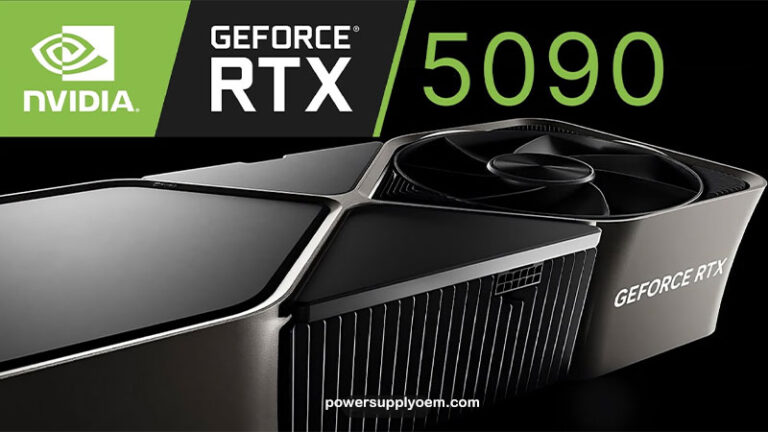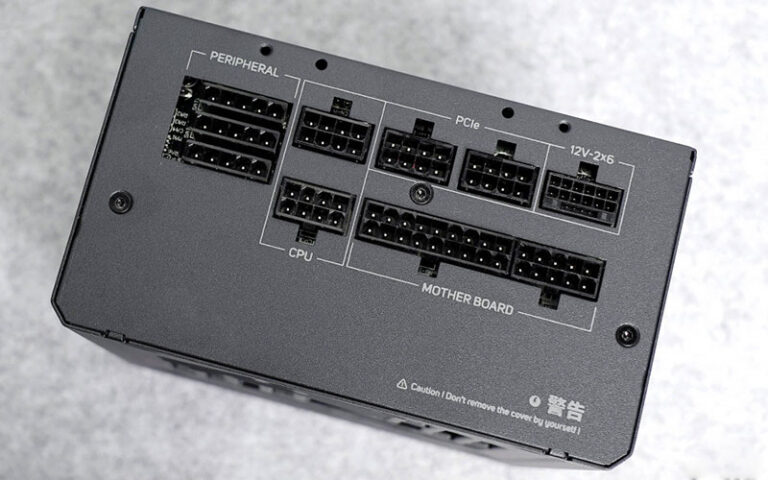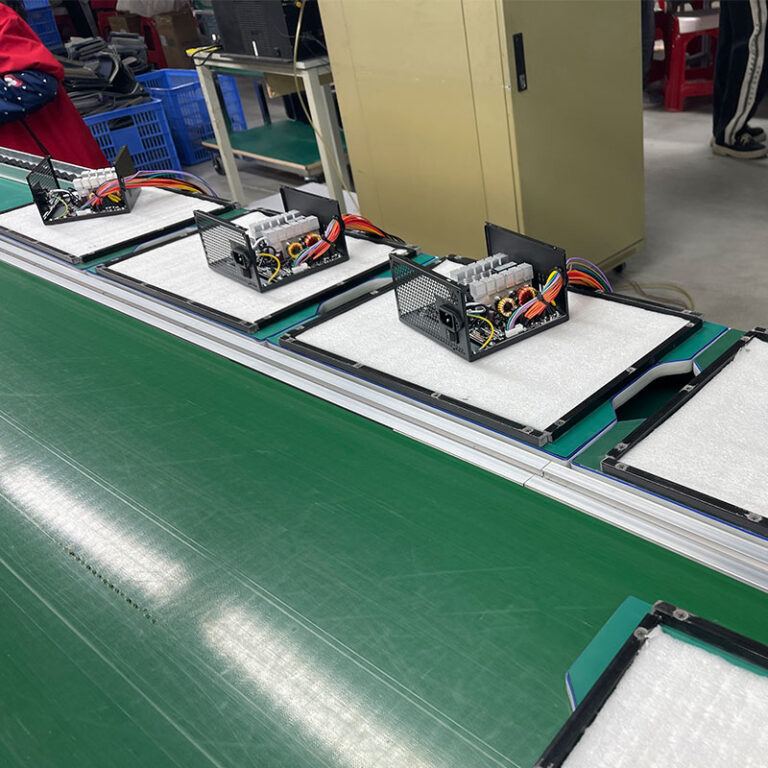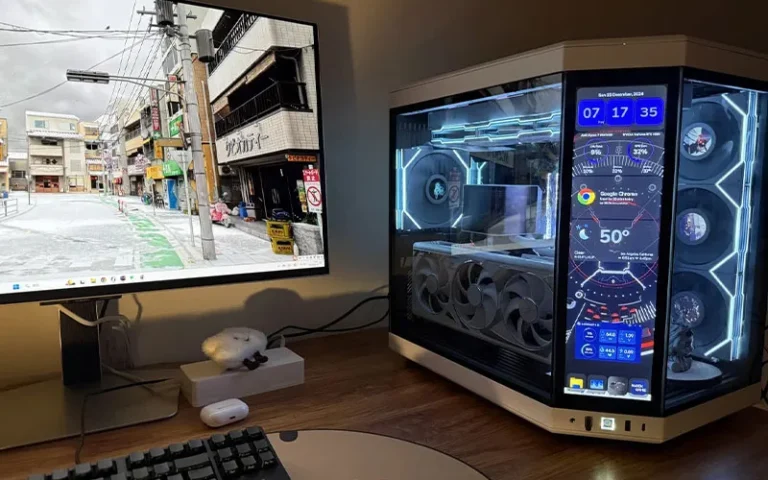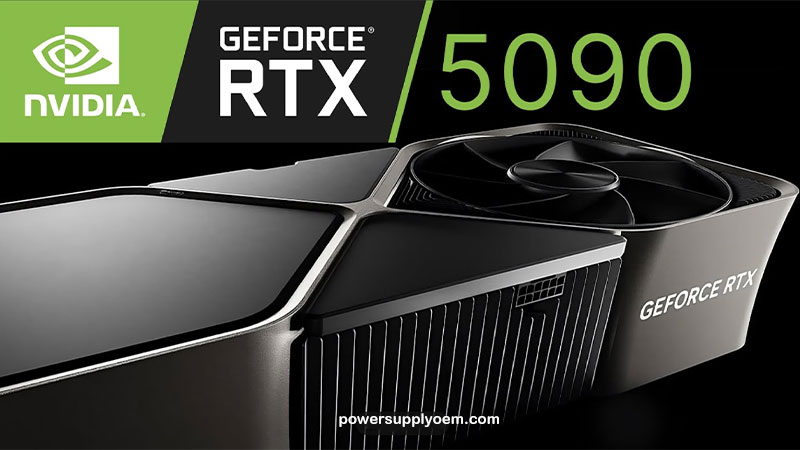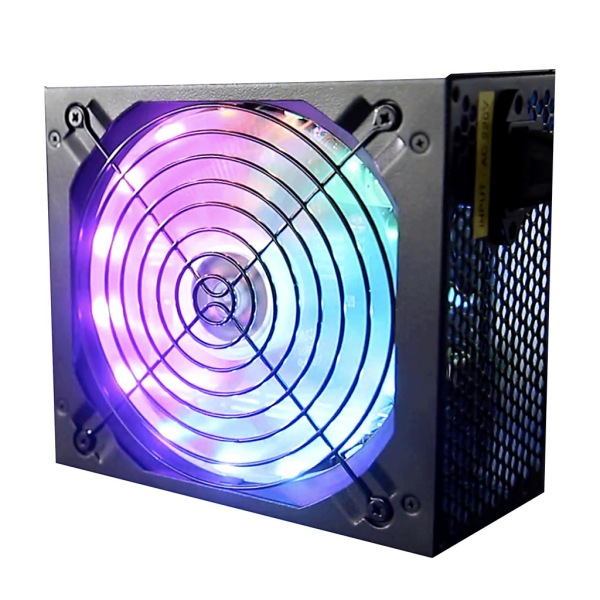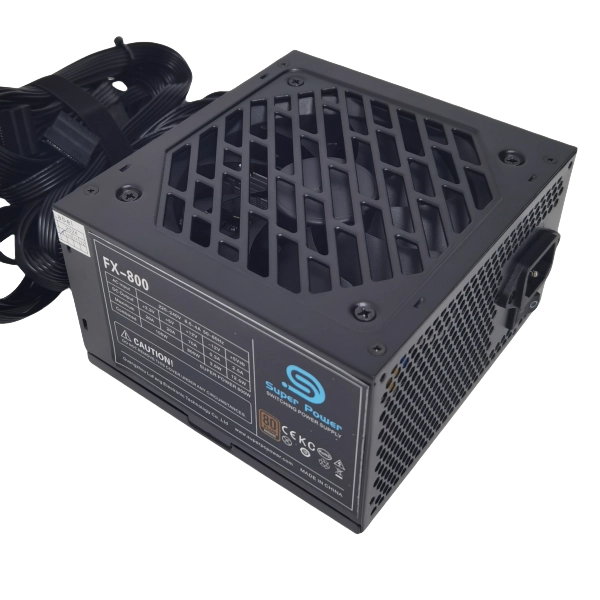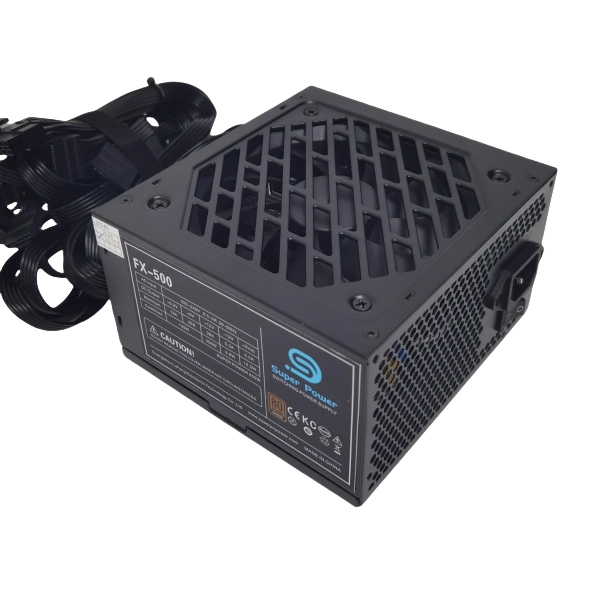-
Building E, No. 65 Xingshan North Road, Liangtian, Baisha Industrial Park, Baiyun District, Guangzhou
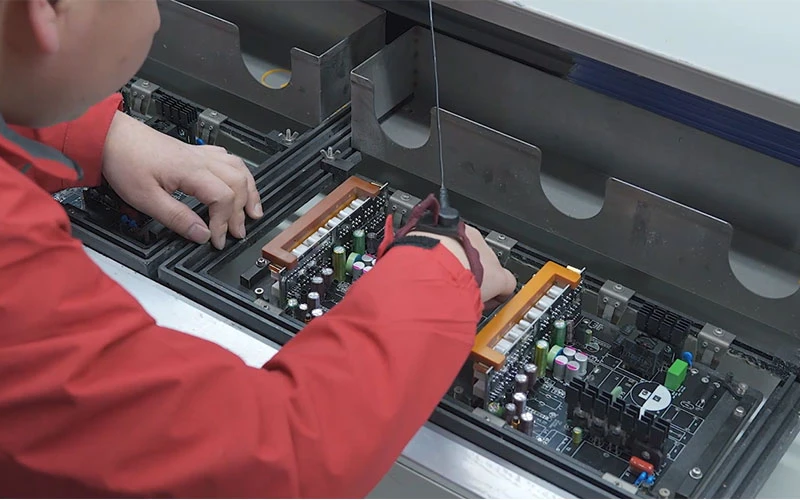
What Does 80 Plus Gold Mean?
Decoding Power Supply Ratings: What Does 80 PLUS Certification Actually Mean?
When shopping for a power supply unit (PSU), you’ll inevitably encounter the “80 PLUS” certification. But what does 80 PLUS actually mean, and why does it matter? This comprehensive guide explains the 80 PLUS certification program, breaks down the different certification levels (80 PLUS White, 80 PLUS Bronze, 80 PLUS Silver, 80 PLUS Gold, 80 PLUS Platinum, and 80 PLUS Titanium), and helps you understand how power supply ratings impact your PC’s efficiency, performance, and even your electricity bill. This information is important for PC power supply brands, 3C supermarkets, Computing equipment manufacturers, IoT device manufacturers, power supply wholesalers, agents, and large Internet cafe owners.
Table of Contents
1. What is the 80 PLUS Certification Program?
The 80 PLUS certification program is a voluntary certification program for computer power supplies. It was launched in 2004 to promote energy efficiency in power supply units (PSUs). The 80 PLUS program sets specific efficiency targets that a power supply must meet at different load levels to earn a certification. The 80 PLUS Certification is a key benchmark.
How it works:
- Voluntary Participation: Power supply manufacturers submit their PSUs to an independent testing lab.
- Testing: The lab tests the PSU’s efficiency at three load levels: 20%, 50%, and 100% of its rated power.
- Certification: If the PSU meets or exceeds the efficiency targets for a specific tier (e.g., 80 PLUS Gold), it receives the corresponding certification.
The 80 PLUS certification program has become a widely recognized standard in the industry, helping consumers identify efficient power supplies. 80 PLUS is a voluntary standard.
2. Understanding Efficiency: Input vs. Output Power
To understand 80 PLUS certification, you first need to grasp the concept of power supply efficiency.
- Input Power: The amount of power the PSU draws from the wall outlet (AC power).
- Output Power: The amount of power the PSU delivers to the computer’s components (DC power).
- Efficiency: The ratio of output power to input power, expressed as a percentage.
Efficiency = (Output Power / Input Power) x 100%
For example, if a PSU draws 500W from the wall (power from the wall) and delivers 400W to the computer, its efficiency is (400W / 500W) x 100% = 80%. The remaining power drawn is 100w. The remaining 100W is wasted as heat. The amount of power wasted is important.
A more efficient power supply wastes less power as heat, which has several benefits (discussed in Section 4).
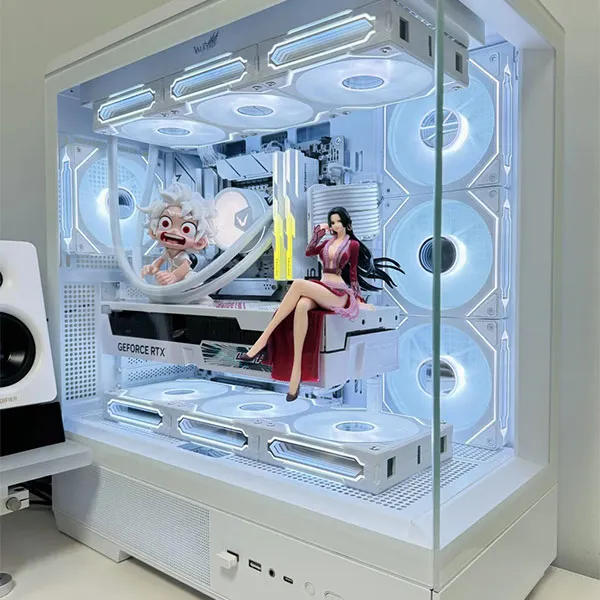
3. The 80 PLUS Certification Levels: A Detailed Breakdown
The 80 PLUS program has several certification levels, each with increasingly stringent efficiency requirements. Here’s a table summarizing the different levels:
| Certification Level | 20% Load | 50% Load | 100% Load | Power Factor |
| 80 PLUS (White) | 80% | 80% | 80% | 0.9 |
| 80 PLUS Bronze | 82% | 85% | 82% | 0.9 |
| 80 PLUS Silver | 85% | 88% | 85% | 0.9 |
| 80 PLUS Gold | 87% | 90% | 87% | 0.9 |
| 80 PLUS Platinum | 90% | 92% | 89% | 0.95 |
| 80 PLUS Titanium | 90% | 94% | 90% | 0.95 |
There is a very clear distinction between 80 PLUS Gold and 80 PLUS Platinum.
Key Points:
- Higher is Better: A higher certification level (e.g., 80 PLUS Platinum vs. 80 PLUS Gold) indicates a more efficient PSU.
- Power Factor: The 80 PLUS program also has minimum power factor requirements. Power factor is a measure of how effectively the PSU uses the AC power it draws. A power factor closer to 1 is better. Platinum and Titanium supplies must be at least 0.95.
- 115V Internal Non-Redundant vs. 230V EU Internal Non-Redundant: There are slightly different efficiency targets for 115V internal non-redundant (used primarily in North America) and 230V EU internal non-redundant power supplies. The table above shows the requirements for 115V internal.
- Redundant: Used for systems that require high availability (e.g. data centers).
- Titanium Level: The titanium level is very efficient at a 10% load.
It is important to note the differences between 80 PLUS tiers. 80 PLUS certification is critical. It’s also important to remember that cheap power supplies may not meet the standards.
4. Why Does PSU Efficiency Matter?
PSU efficiency impacts several aspects of your computer system:
- Electricity Bill: A more efficient PSU wastes less energy, resulting in lower electricity bills. While the savings might seem small for an individual user, they can add up over time, especially for businesses or users with multiple computers.
- Heat Generation:Less power wasted as heat means the PSU runs cooler. This can:
- Improve system stability, especially in high-performance systems or compact cases with limited airflow.
- Reduce fan noise, as the PSU fan doesn’t need to work as hard to keep the unit cool.
- Potentially extend the lifespan of the PSU and other components by reducing thermal stress.
- Environmental Impact: Higher efficiency means lower energy consumption, which reduces your carbon footprint.
Choosing an efficient PSU is a win-win situation for your wallet, your computer, and the environment.
5. Beyond 80 PLUS: Other PSU Features to Consider
While the 80 PLUS rating is a crucial factor, other features also contribute to a PSU’s overall quality and suitability for your needs:
- Wattage: Choose a PSU with sufficient wattage to power all your components, plus some headroom for future upgrades.
- Form Factor: Ensure the PSU’s form factor (ATX, SFX, TFX, etc.) is compatible with your computer case. Check out our ATX Power Supply, SFX Power Supply, FLEX Power Supply, and TFX Power Supply options.
- Connectors: Verify that the PSU has all the necessary connectors for your motherboard, CPU, graphics card, storage devices, and other peripherals.
- Modularity: Modular or semi-modular PSUs allow you to detach unnecessary cables, improving airflow and cable management.
- Protection Features: Look for PSUs with over-voltage, under-voltage, over-current, short-circuit, and over-temperature protection.
- Fan Size and Noise: A larger fan can often cool the PSU more effectively and quietly. Some PSUs have a “fanless” or “semi-fanless” mode at low loads for even quieter operation.
- Warranty: A longer warranty (e.g., 5, 7, or 10 year warranty) indicates the manufacturer’s confidence in the PSU’s reliability.
Consider all these factors when choosing a PSU to ensure you get a unit that meets your specific needs and provides reliable, efficient power for your system.
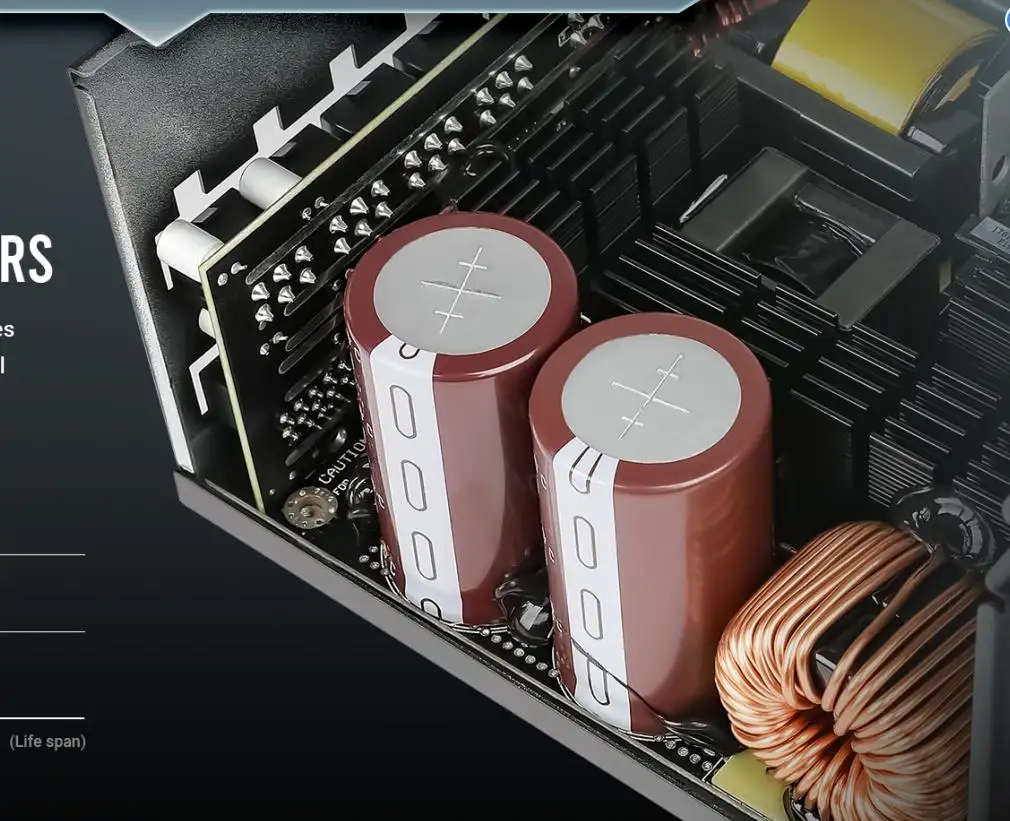
6. Choosing the Right 80 PLUS Rating for Your Needs
Here’s a general guide to choosing the appropriate 80 PLUS rating for different use cases:
- Basic Office/Web Browsing PC: 80 PLUS (White) or 80 PLUS Bronze is usually sufficient.
- Mid-Range Gaming/General Use PC: 80 PLUS Gold is a good choice, offering a balance of efficiency and cost.
- High-End Gaming/Content Creation PC: 80 PLUS Gold or 80 PLUS Platinum is recommended for optimal efficiency and performance.
- Workstations/Servers: 80 PLUS Platinum or 80 PLUS Titanium is often preferred for maximum efficiency and reliability in demanding 24/7 operation.
- Standard Desktop Supplies: 80 PLUS (White) is the minimum.
Keep in mind that higher-rated PSUs generally cost more, but the long-term energy savings and potential for improved system stability can often justify the investment, especially for high-end systems.
7. OEM Power Supplies and 80 PLUS Certification
As an OEM (PC power supply, ATX power supply, SFX power supply, FLEX power supply, TFX power supply, 80 PLUS Gold) manufacturer, we understand the importance of power supply efficiency. We offer:
- 80 PLUS Certified PSUs: We manufacture PSUs that meet or exceed various 80 PLUS certification levels, ensuring high efficiency and quality. Our 80 plus gold 850w power supply is very efficient.
- Customization: We can tailor power supplies to your specific needs, including wattage, form factor, connectors, cabling, branding, and efficiency targets.
- Quality Control: We implement rigorous testing procedures to ensure that our power supplies meet the highest standards for performance and reliability.
Partnering with us allows you to offer your customers efficient and reliable power supplies, enhancing your brand reputation and contributing to a more sustainable computing ecosystem.
8. The Future of PSU Efficiency Standards
The 80 PLUS certification program has been instrumental in driving improvements in power supply efficiency over the years. As technology advances, we can expect even more efficient PSUs in the future.
Some potential trends include:
- Higher Efficiency Levels: New certification tiers beyond 80 PLUS Titanium might emerge, pushing efficiency even further.
- GaN (Gallium Nitride) Technology: GaN transistors are becoming increasingly popular in power supplies due to their higher efficiency and smaller size compared to traditional silicon transistors.
- Digital Power Supplies: Digital PSUs offer more precise control and monitoring of power delivery, potentially leading to improved efficiency and performance.
- Focus on Low-Load Efficiency: As computers become more energy-efficient in idle or low-power states, there will likely be a greater emphasis on improving PSU efficiency at very low loads (e.g., below 20% of rated capacity).
These advancements will continue to improve the energy efficiency of computer power supplies, reducing energy consumption and environmental impact.
9. Case Studies: The Impact of PSU Efficiency
Let’s look at some examples of how PSU efficiency can make a difference:
- Case Study 1 (Gaming PC): A gamer upgrades their PSU from an 80 PLUS (White) certified 500W unit to an 80 PLUS Gold certified 650W unit. They notice a slight decrease in their electricity bill and find that their system runs slightly cooler and quieter, especially during intense gaming sessions.
- Case Study 2 (Office PCs): A company replaces the power supplies in its office computers with 80 PLUS Bronze certified units. Over the course of a year, they see a noticeable reduction in their overall electricity consumption, resulting in cost savings.
- Case Study 3 (Data Center): A data center upgrades its server power supplies to 80 PLUS Platinum certified units. The increased efficiency leads to significant energy savings, reduced cooling costs, and a smaller carbon footprint.
- Case Study 4 (PC Builder): Builds multiple systems for their clients, and uses 80 PLUS certified power supplies for better performance.
These case studies demonstrate that PSU efficiency can have a tangible impact on electricity costs, system performance, and environmental sustainability.
10. 80 PLUS and Power Factor Correction (PFC)
The 80 PLUS certification program also includes requirements for power factor correction (PFC).
- Power Factor: A measure of how effectively the PSU uses the AC power it draws from the wall outlet. A power factor closer to 1 is ideal.
- Active PFC: Most modern, high-quality PSUs use Active PFC, which uses electronic circuitry to improve the power factor.
- 80 PLUS Requirements: The 80 PLUS program requires a minimum power factor of 0.9 for most certification levels, and 0.95 for Platinum and Titanium.
Active PFC not only improves power supply efficiency but also reduces harmonic distortion on the electrical grid, which can benefit other devices connected to the same circuit.
Frequently Asked Questions
What does “80 PLUS” mean on a power supply?
It means the power supply is certified to be at least 80% efficient at 20%, 50%, and 100% load, meaning it wastes less energy as heat.
Is 80 PLUS Bronze good enough for gaming?
80 PLUS Bronze is acceptable for entry-level to mid-range gaming PCs, but 80 PLUS Gold is generally recommended for better efficiency and performance.
What’s the difference between 80 PLUS Gold and Platinum?
80 PLUS Platinum certified power supplies are more efficient than 80 PLUS Gold units, especially at higher loads. This translates to slightly lower electricity bills and less heat generation.
Do I need an 80 PLUS Titanium PSU?
80 PLUS Titanium PSUs offer the highest efficiency, but they are also the most expensive. They are typically only necessary for extreme high-end systems or servers where maximum efficiency is paramount.
Can a higher 80 PLUS rating improve my PC’s performance?
While a more efficient PSU won’t directly increase your PC’s frame rates or processing speed, it can contribute to overall system stability and potentially allow for better overclocking headroom due to cleaner and more consistent power delivery.
How do I know what 80 Plus rating I need?
Consider the overall wattage needs, your budget, and your desire for energy efficiency. For most users, 80 PLUS Gold offers a good balance.
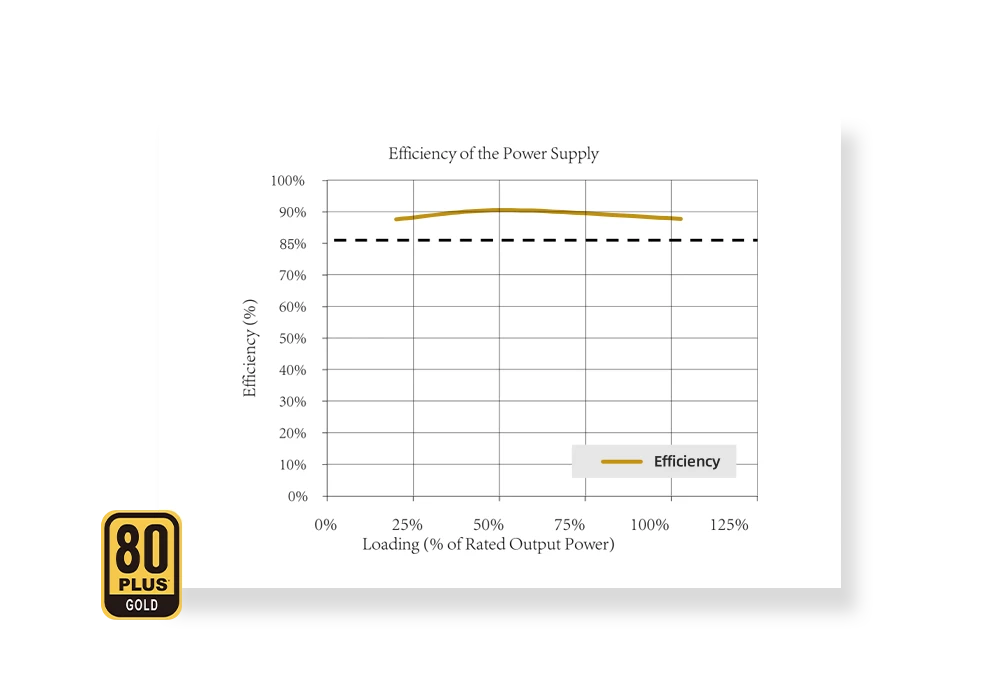
Summary
- The 80 PLUS certification program is a valuable tool for identifying energy-efficient power supplies (PSUs).
- 80 PLUS certification guarantees a minimum efficiency level at different load levels.
- Higher 80 PLUS ratings (80 PLUS Gold, Platinum, Titanium) indicate greater efficiency, resulting in lower electricity bills, less heat generation, and often higher-quality components.
- PSU efficiency impacts your electricity bill, system cooling, and potentially system stability.
- Beyond 80 PLUS, consider other PSU features like wattage, form factor, connectors, modularity, and warranty.
- As an OEM power supply manufacturer, we offer 80 PLUS certified PSUs and customized solutions to meet your specific needs.
- Partnering with us provides access to expertise, quality, cost-effectiveness, and customization options.
- We offer a wide range of power supplies, including ATX, SFX, FLEX, and custom designs.
- Our FLEX Power Supply options are very efficient.
- Power supply ratings are essential to understand when selecting a unit.
- Understanding 80 PLUS certification helps in choosing the right power supply.
- We are manufacturers of quality power supplies.

